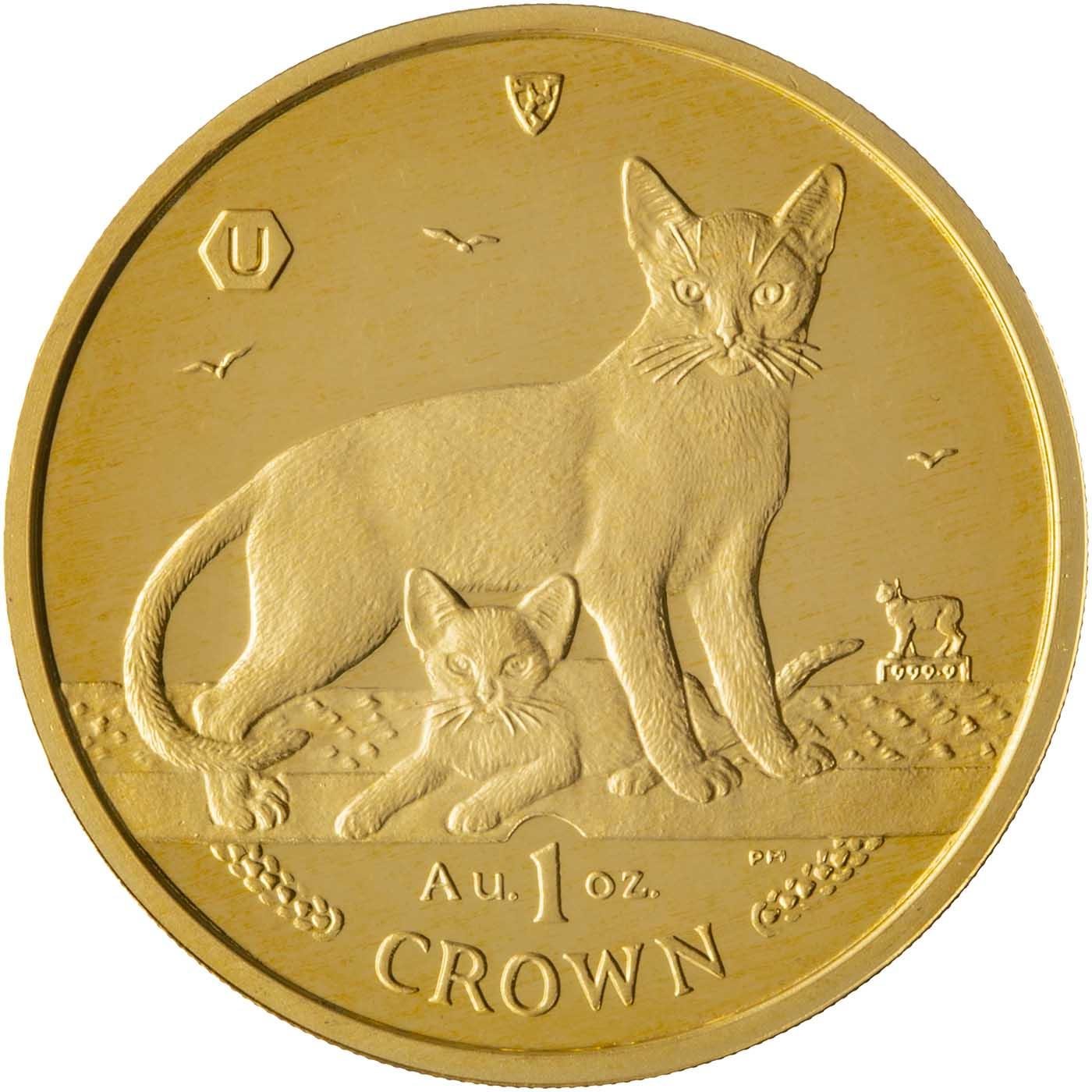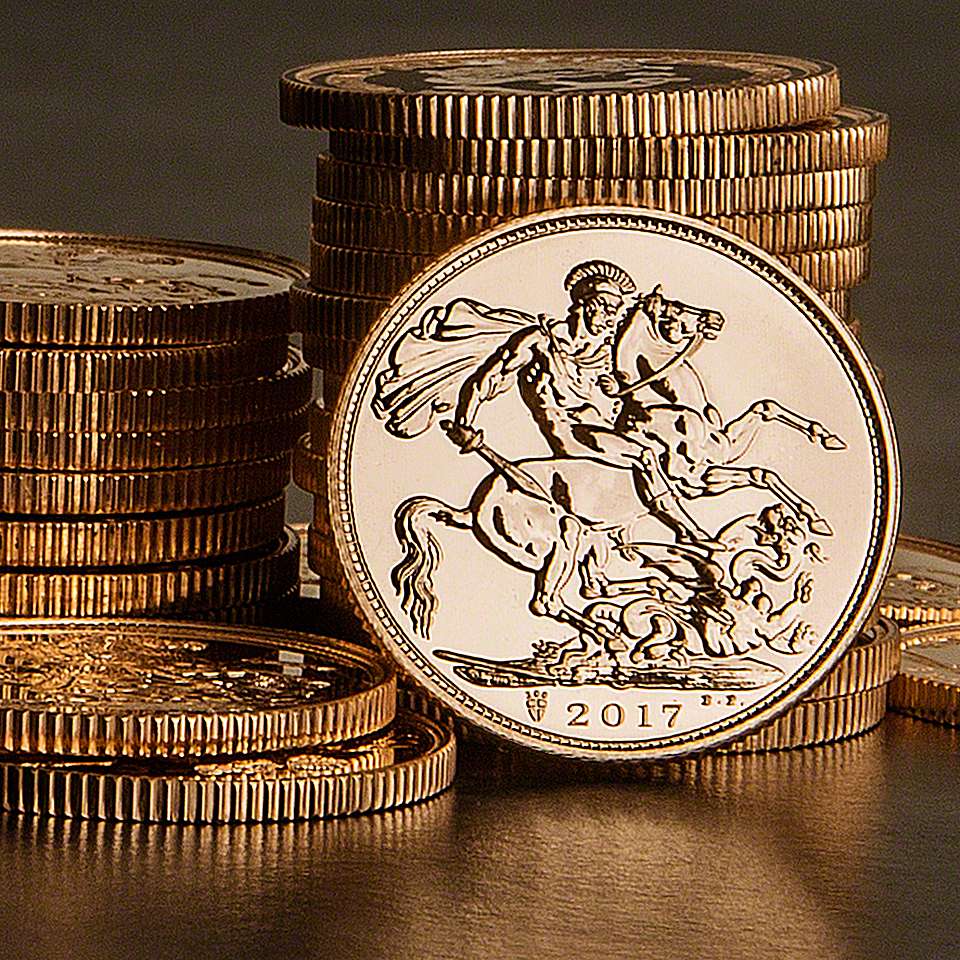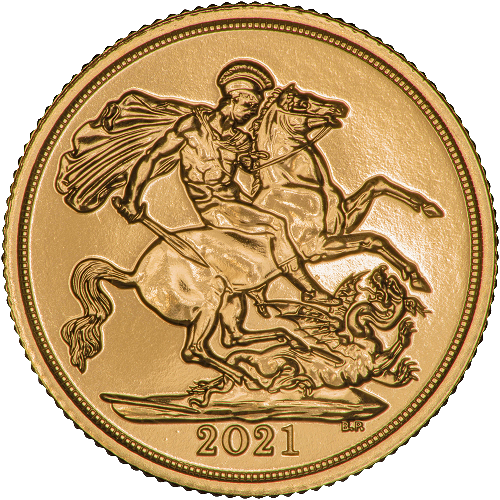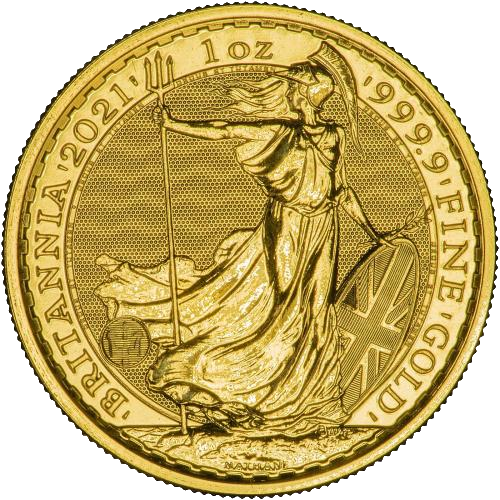Capital Gains Tax on Gold Bullion – Do I Pay This?
Synopsis
For UK residents, bullion coins which are UK legal tender pound sterling coins are exempt from capital gains tax (CGT). This is because these types of bullion coins are UK legal currency, so would not be 'chargeable assets' under current CGT rules.
Non-British bullion coins, and all bullion bars, are liable for CGT.
We have a wide range of CGT exempt bullion available to buy for those interested in taking advantage of this tax exemption.
What is Capital Gains Tax?
Capital Gains Tax (CGT) is a form of levies imposed on the profit garnered from the sale of assets, such as real estate, investments, and collectibles. In the United Kingdom, the present CGT allowance is £3,000 per annum per individual, which implies that one can earn up to £3,000 from the sale of assets prior to being subject to CGT.
For UK residents, bullion coins which are UK legal tender pound sterling coins are exempt from capital gains tax (CGT).
What Is the Capital Gains Tax Rate in the UK 2024?
The new (CGT) allowance as of April 6th 2024 is just £3,000 - having halved again since 2023.
This reduction in the CGT allowance is having a significant impact on individuals and businesses that hold assets subject to CGT. As the allowance decreases, more people and companies are required to pay CGT on their investments. This results in many individuals having to pay more taxes on their profits, leaving them with less capital to invest in other assets. Furthermore, this reduction comes at a time when the UK economy is still recovering from the effects of the Covid-19 pandemic.
Do I Pay Capital Gains Tax on Bullion?
The short answer is, it depends! This can be a complicated subject to discuss, but we will happily give you the benefit of our knowledge and the information that we have acquired over the years.
For most private investors, profits on investment gold would be dealt with under CGT (capital gains tax) rather than as income. If you buy CGT exempt coins you are not liable to pay any tax on them should you decide to sell (dispose of) them. However, not all coins and bars are exempt.
If you dispose of bullion which is not CGT exempt, you are required to pay tax on profits that exceed the annual capital gains tax allowance, which is currently £3,000.
This applies to bullion such as Krugerrands and gold bars.
However, many retail investors will not be liable to pay CGT as profits remain within their allowances, so would probably have no tax to pay. If you are investing large sums and are a UK resident, we highly recommend purchasing CGT exempt coins such as Britannias, sovereigns or Queen's Beast coins.
We should stress we are not accountants, tax experts or financial advisors, and you should consult further if you have more questions. More information can be found on the capital gains tax section of the HMRC website.
Examples Of What We Pay CGT On
You might be wondering, 'How can I determine if a coin is not CGT exempt before purchasing it?' The answer is straightforward: coins with a legal tender value other than the British pound (£) will incur CGT because they must be UK legal tender pound sterling coins.
Here is a brief list of items on which you are required to pay CGT, but it is not limited to these items:
- South African Krugerrands
- American Bullion Coins
- Isle of Man Cat Bullion Coins
- Isle of Man Angel Bullion Coins
- Royal Mint Coins on behalf of Guernsey & Alderney.

Gold Isle of Man Manx Cats Bullion Coin
Importance of Purchasing UK Bullion Products as a Tax-Efficient Investment
Considering these changes, it is increasingly imperative for individuals and businesses to ponder the tax implications of their investments. One way to mitigate the impact of CGT is to invest in assets that are immune from the tax. Gold bullion products such as Britannias and Sovereigns are a prime example of such assets.
Bullion coins or bars are made from precious metals, such as gold and silver. They are minted by the Royal Mint (the official mint of the United Kingdom) and are guaranteed by the government. Britannias and Sovereigns are two of the most sought-after UK bullion products, both of which boast a rich history and are acknowledged worldwide.
One of the paramount advantages of investing in current UK sterling legal tender products is that they are exempt from CGT. This means that individuals and businesses can purchase these coins and do not pay any CGT on the profit made from their sale. This can represent a substantial tax saving for individuals who are affected by the reduction in the CGT allowance.
Historically, the value of gold and silver has been relatively stable, and these coins are often used as a hedge against inflation. Furthermore, these coins are widely accepted and the price is not affected by credit risk. Additionally, for those who are seeking a tangible asset, bullion coins and bars offer an easy and secure way to store it.
Another benefit of investing in bullion is that they can be stored in a variety of ways. At Chards we offer storage options such as a ‘Digital Gold Account’ and an ‘Digital Silver Account’, which allows individuals and businesses to store their coins in a secure and insured location. Customers can choose our dedicated world class storage facilities right here in Blackpool or store bullion overseas in bonded warehouses.
How Do I Avoid Paying Capital Gains Tax?
Avoiding tax is allowed, as opposed to tax evasion (which, of course, is illegal). We encourage our customers to do these two things:
1. Buy capital gains tax exempt coins which include:
2. If buying coins which are subject to capital gains tax we would suggest the following:
- When you sell or dispose of your coins ensure the profit you make falls within your yearly allowance. If you know you are going to fall into this bracket, as previously advised, take advantage of lower premium products.
- Think about part selling, for example, sell a portion of your investment in one financial year and a portion in another year.
- If you make a loss on the sale of assets this can be set against any gains before making a final calculation.
Tax Free Disposal of Sterling
Way back in the 1960s, we read that profits on disposals of sterling were exempt from CGT. Sovereigns, half sovereigns, and other British gold coins are legal tender sterling coins, and as such should qualify as exempt. Gold Britannias are also legal tender sterling, so they would also qualify for the same status. We were initially unsure that this exemption was still current, but have now ascertained that it is from this exchange in 2006, and it does strengthen the case for investing in gold sovereigns in preference to Krugerrands or gold bars. You can find the relevant passage from the HMRC manual here.
We have created this simple flowchart to illustrate whether a coin is exempt from CGT or not. Please note this is only applicable to British residents.
CGT Exempt Status on Some Gold Coins
In short, capital gains tax is the tax you pay on a profit made when you sell certain assets. Selling an asset is also called a "disposal". You will be subject to CGT on the following:
- Most personal possessions worth £3,000 or more, apart from your car
- Property that isn’t your main home
- Your main home if you’ve let it out, used it for business or it’s very large
- Shares that aren’t in an ISA or PEP
- Business assets
- Cryptocurrency
- Swapping investments
Disposals of United Kingdom currency (pounds sterling) are exempt from capital gains tax. As gold sovereigns, half sovereigns, and gold Britannias in all four sizes, are sterling, they are, or should be, treated as exempt from CGT.
All the following sterling coins are exempt from CGT:
- Sovereigns minted in 1837 and later years
- Britannias
- British Lunar Coins
- 50 Pence Coins
- Two Pound Coins
- Five Pound Coins
- Sovereign Coin Sets
- Britannia Coin Sets
Here are 2 popular CGT exempt products which you can buy straight from this page:
2022 Queen Elizabeth II Platinum Jubilee Gold Sovereign Coin
|
2022 Britannia 1 oz Gold Bullion Coin |
How does Sterling Currency Affect Capital Gains Tax?
Currency in sterling is not an asset for capital gains purposes. It is the unit by reference to which capital gains are measured
Britannia Face Value
Take, for example, the one ounce gold Britannia coin: it has a face value of £100. In theory, if gold were to drop below £100 per ounce, then at least your one ounce gold Britannia will still be worth £100!
This is good news if you have decided to dispose of your sovereigns (post 1837) half sovereigns, Britannias and other British gold coins, including the British Lunar series. As these coins have a legal 'face value' denominated in pounds sterling, they should be treated as exempt from capital gains tax. You could dispose of these – make an unlimited profit – and this should not be counted as part of your tax allowance. This produces a great argument for investing in British coins.
Sterling Area
The sterling area was a group of countries, led by the United Kingdom, that either pegged their currencies to the pound sterling, or actually used sterling as their own currency. The sterling area arguably came to an end in 1972 when the British government unilaterally applied exchange controls to the other sterling area countries, in line with the UK's application to join the then European Economic Community. Today the 'sterling area' mainly refers to the currencies used by the UK, the Isle of Man, the Crown dependencies in the Channel Islands and the British Overseas Territories.
The Isle of Man, Jersey and Guernsey are permitted to issue their own local versions of the pound sterling in their respective territories. This arrangement is similar to Scottish and Northern Irish banks issuing their own banknotes denominated in sterling. As a result, Manx sterling, Jersey sterling and Guernsey sterling do not have separate ISO 4217 currency codes and are considered local issues of the pound sterling. This means any legal currency precious metal coins issued from these territories should be capital gains tax exempt.
The British Antarctic Territory, South Georgia and the South Sandwich Islands, the British Indian Ocean Territory and Tristan da Cunha all de jure use the British pound sterling. Tristan da Cunha occasionally issues commemorative coins, for which it has to seek permission from the British Secretary of State for Foreign & Commonwealth Affairs. These Tristan coins are pound sterling coins, so are exempt from capital gains tax. In the British Indian Ocean Territory, the US dollar is used de facto.
Rather confusingly, Gibraltar, the Falkland Islands and Saint Helena have separate currencies (all named after the 'pound') pegged to the pound sterling at par (1:1). These local currencies circulate alongside the pound sterling within the respective territory, but they are treated differently to the pound sterling by having their own ISO 4217 codes. This would imply that any precious metal coins issued in these local currencies would be liable for capital gains tax in the UK.
Why You Should Consider CGT When Investing in Bullion
To conclude, the decrease in the CGT allowance currently in effect in the UK will significantly affect individuals and businesses holding assets that are subject to CGT. Therefore, it is becoming increasingly critical for individuals to carefully consider the tax implications of their investments in light of these changes. Britannias and Sovereigns are an exceptional option as they are exempt from CGT, and offer a tax-efficient way to invest in precious metals.
It is important to note that when making investment decisions, one should always consult with their tax advisors to determine the most appropriate course of action for their specific circumstances. For individuals, they can reduce overall tax liability and increase the amount of capital available for investment in other assets.
Related Articles
Popular Products
This guide and its content is copyright of Chard (1964) Ltd - © Chard (1964) Ltd 2024. All rights reserved. Any redistribution or reproduction of part or all of the contents in any form is prohibited.
We are not financial advisers and we would always recommend that you consult with one prior to making any investment decision.
You can read more about copyright or our advice disclaimer on these links.














































